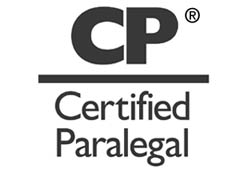
Are legal professionals more resistant to change than any other group? Perhaps, but we work in a system whose very foundation is precedent. However, today’s legal market is undergoing unprecedented changes. Some estimate that the last 10 years have seen more changes than the last 100. Consequently, the legal world has taken on a new characteristic – adaptability.
The adaptations that began as survival tactics in the 2008 downturn have evolved into a new way of life for law firms. Formerly change-resistant attorneys are adopting a more client-focused model and reaping the benefits.
Here are just a few adaptations I have seen my clients make that have helped their practices thrive in the new legal market…
- Legal Project Management (LPM) with a focus on cost containment and client involvement. Systematization of a legal matter boils down to determining the desired outcome, then mapping out the steps to get there in the most cost effective way. Setting a budget for each phase of the project instead of for the matter as a whole, helps to prevent overspending. You can set landmarks within the project for client review to maintain communication and collaboration.
- Alternative Fee Arrangements. The traditional open-ended, hourly billing arrangement has taken its toll on the reputation of the legal profession. When clients avoid calling their legal counsel with questions because they know the clock is ticking, damage is done to the relationship as well as the legal representation. Clients that are certain of their legal costs begin to place more trust in their attorneys. With fixed fees and other alternatives, a client can be sure that the law firm will work efficiently to try and contain costs so that a profit can be made. The client relationship improves and ultimately the reputation of the legal profession as a whole will benefit.
- Attorney Use of Technology. Until recently, many attorneys viewed learning the latest technology as an assignment for their support staff. I have witnessed a shift in this thinking as attorneys have realized that in order to stay competitive and operate more efficiently, they must adopt the tools necessary and learn to use them. Technology has increased productivity in law firms and has helped many to enjoy working in law again by removing the tediousness of some tasks such as legal research or shepardizing. The legal profession has made excellent use of the conveniences offered by technology. Of course, we have an ample supply of vendors to push us in that direction.
Change is inevitable in every aspect of life. The legal profession may have been forced into some of its recent changes, but I believe we have done a beautiful job of seizing the opportunity to personalize our services and return our focus to the ones who make what we do possible – our clients.
Photo: Morton Devonshire
 Misty L. Sheffield is a freelance paralegal helping solos and small law firms in civil litigation. She has been assisting attorneys for over 12 years.
Misty L. Sheffield is a freelance paralegal helping solos and small law firms in civil litigation. She has been assisting attorneys for over 12 years. 



Congratulations on your first blog post, my friend!
Thank you Jim. It would not have happened without your help and encouragement.